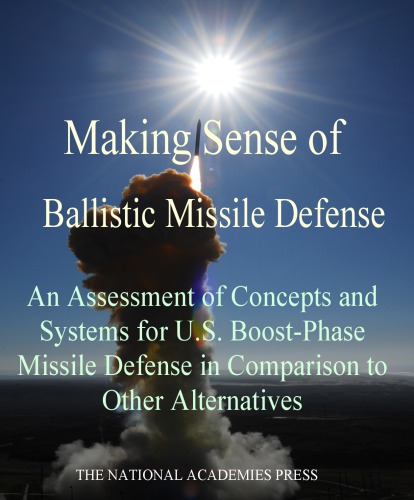

Most ebook files are in PDF format, so you can easily read them using various software such as Foxit Reader or directly on the Google Chrome browser.
Some ebook files are released by publishers in other formats such as .awz, .mobi, .epub, .fb2, etc. You may need to install specific software to read these formats on mobile/PC, such as Calibre.
Please read the tutorial at this link: https://ebookbell.com/faq
We offer FREE conversion to the popular formats you request; however, this may take some time. Therefore, right after payment, please email us, and we will try to provide the service as quickly as possible.
For some exceptional file formats or broken links (if any), please refrain from opening any disputes. Instead, email us first, and we will try to assist within a maximum of 6 hours.
EbookBell Team

4.7
96 reviewsTo provide a context for this analysis of present and proposed U.S. boost-phase and non-boost missile defense concepts and systems, the committee considered the following to be the missions for ballistic missile defense (BMD): protecting of the U.S. homeland against nuclear weapons and other weapons of mass destruction (WMD); or conventional ballistic missile attacks; protection of U.S. forces, including military bases, logistics, command and control facilities, and deployed forces, including military bases, logistics, and command and control facilities. They also considered deployed forces themselves in theaters of operation against ballistic missile attacks armed with WMD or conventional munitions, and protection of U.S. allies, partners, and host nations against ballistic-missile-delivered WMD and conventional weapons.
Consistent with U.S. policy and the congressional tasking, the committee conducted its analysis on the basis that it is not a mission of U.S. BMD systems to defend against large-scale deliberate nuclear attacks by Russia or China. Making Sense of Ballistic Missile Defense: An Assessment of Concepts and Systems for U.S. Boost-Phase Missile Defense in Comparison to Other Alternatives suggests that great care should be taken by the U.S. in ensuring that negotiations on space agreements not adversely impact missile defense effectiveness. This report also explains in further detail the findings of the committee, makes recommendations, and sets guidelines for the future of ballistic missile defense research.